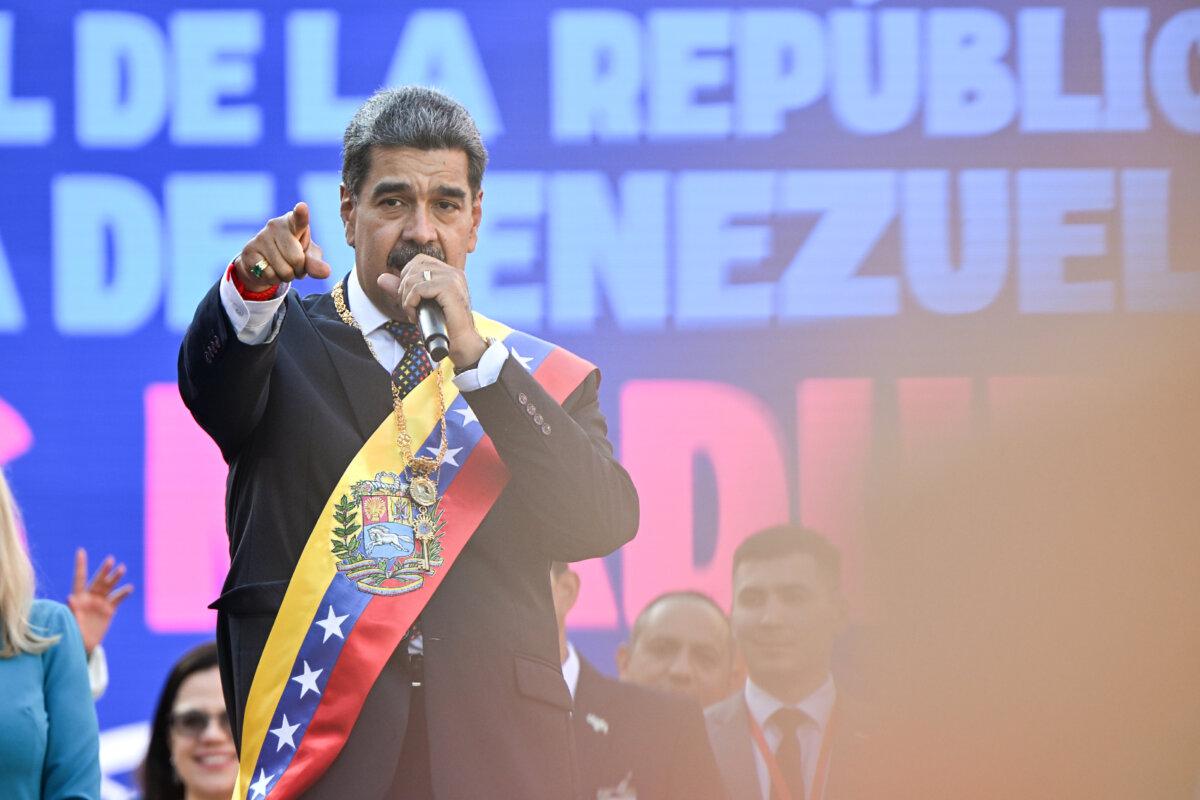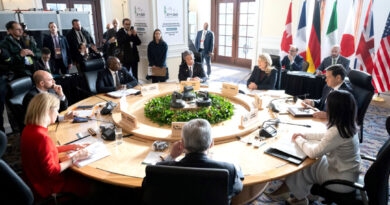El Salvador suggests exchanging Venezuelan deportees in the US for Maduro’s political prisoners
Salvadoran President Nayib Bukele suggested a deal on April 20 where El Salvador would consider exchanging prisoners with Venezuela’s socialist government.
Bukele’s proposal outlined a plan to swap individuals who opposed Venezuelan President Nicolas Maduro’s contentious re-election in 2024 with deported Venezuelan nationals sent to El Salvador from the United States.
“I am proposing a humanitarian agreement that involves repatriating all 252 Venezuelans who were deported, in return for the release and transfer of the same number (252) of the numerous political prisoners in your custody,” Bukele stated in a post on the X social media platform.
Venezuela has shown no interest in accepting Bukele’s offer, insisting on the immediate release of the Venezuelans held in Salvadoran confinement.
During the initial stages of his presidency, President Donald Trump established an agreement with Bukele to house several hundred deportees, whose home country would not take them back, in exchange for an annual fee of $6 million. Since then, the two leaders have maintained a close partnership.
Individuals deported as part of the deal have primarily been involved with criminal organizations or gangs—including numerous Venezuelans associated with the Tren de Aragua gang, who have been convicted of violent offenses such as murder or rape in the United States or elsewhere.
In his post, Bukele highlighted Maduro’s objections to the treatment of the Venezuelans under the agreement, labeling them as “political prisoners” of the Trump administration. Bukele refuted this portrayal and stated, “Unlike you, we do not harbor political prisoners.”
He clarified that the Venezuelans in his custody were apprehended in the United States as part of targeted operations against the Tren de Aragua and related gangs.
“Unlike our detainees,” Bukele emphasized, mentioning that many of these were convicted felons, including murderers, rapists, or repeat offenders, “your political prisoners have not committed any crimes.”
Bukele’s proposal and comments specifically focus on those arrested for opposing Maduro’s heavily disputed re-election in 2024, which has been widely criticized in the West for not being free or fair.

President of Venezuela Nicolas Maduro speaks during the swear-in ceremony at Palacio Federal Legislativo in Caracas, Venezuela, on Jan. 10, 2025. Alfredo Lasry R/Getty Images
Under President Joe Biden, the U.S. government determined that Maduro had engaged in widespread electoral fraud to retain power in an election where there was considerable anti-incumbent sentiment in Venezuela. The country had turned against Maduro’s administration due to continued hyperinflation, food scarcities, and sanctions from the West.
It is widely believed that opposition candidate Edmundo Gonzalez won the election with more than 65% of the vote. However, the state declared Maduro the winner with approximately 51%, compared to Gonzalez’s 43%.
Bukele’s proposal involves the release of individuals arrested by the Maduro regime in response to the backlash following these election results.
He specified a few names whose exchange he was advocating for: Gonzalez’s son-in-law Rafael Tudares, journalist Roland Carreño, and activist and lawyer Rocío San Miguel.
Bukele also requested the inclusion of María Corina Machado’s mother in the swap. María Corina Machado, the initial opposition leader before being banned from the election by the state, has her mother, Corina Parisca de Machado, facing daily intimidation and sabotage of basic services such as electricity and water.
He further urged the release of asylum seekers currently trapped in the Argentinian Embassy due to a blockade ordered by Maduro following the June 2024 election. These opposition leaders, indicted by the Maduro regime, sought refuge in the Argentinian Embassy, resulting in a blockade and restricted access to electricity in the embassy building.
Bukele described these individuals—including Machado’s campaign manager Magalli Meda, as well as Pedro Urruchurtu, Omar González, Claudia Macero, and Humberto Villalobos—as political figures.
Bukele’s terms also include the exchange of around 50 detained individuals from various nationalities, including American, German, Dominican, Argentine, Bolivian, Israeli, Chilean, Colombian, Ecuadorian, Spanish, French, Guyanese, Dutch, Iranian, Italian, Lebanese, Mexican, Peruvian, Puerto Rican, Ukrainian, Uruguayan, Portuguese, and Czech citizens.
In response, Venezuelan Attorney General Tarek William Saab dismissed Bukele’s statement as “cynical.”
Saab referred to CECOT, the Salvadoran prison where U.S. deportees are housed, as “a torture center created by the macabre mind of Bukele.”



